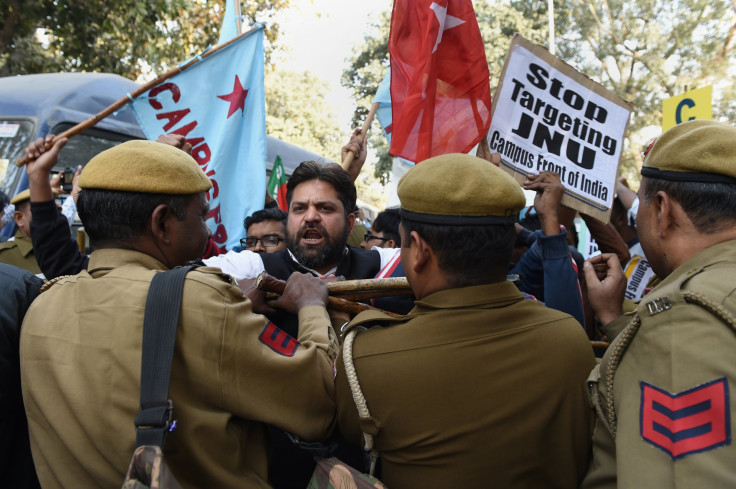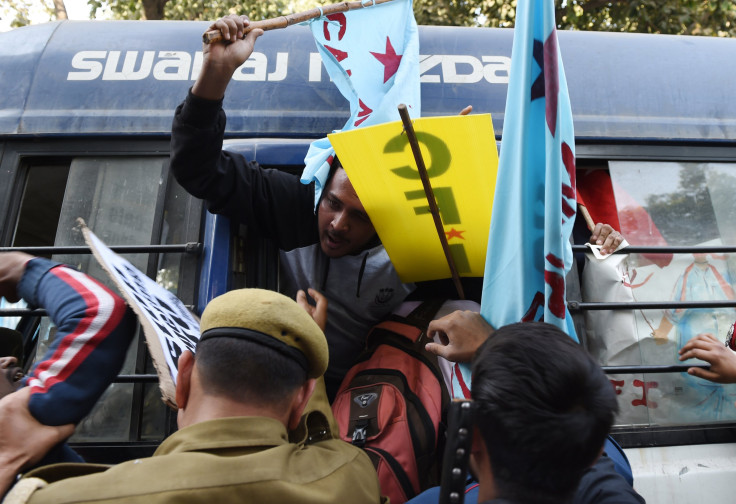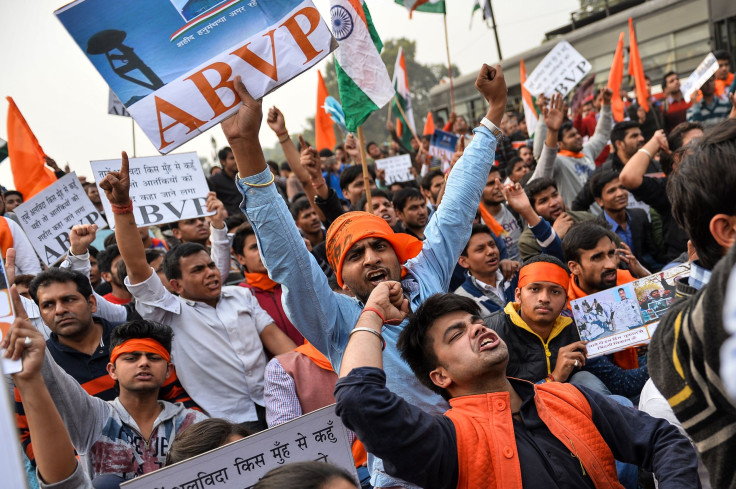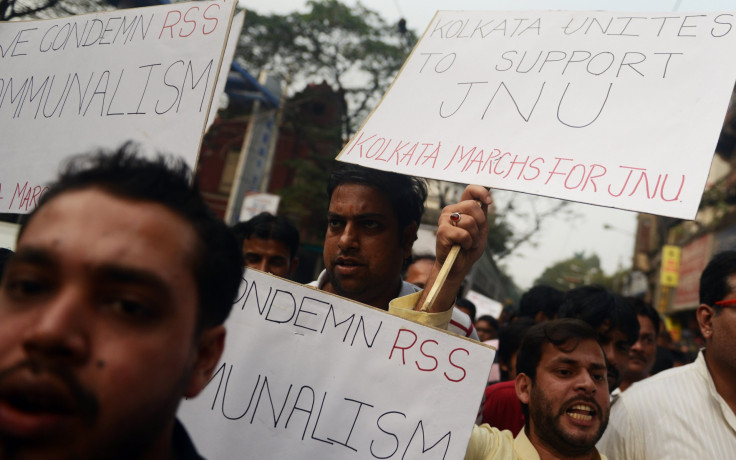India’s Jawaharlal Nehru University Protests Spread To Other Colleges After Violence Against Students, Journalists

UPDATE: 5:55 a.m. — The Supreme Court of India ordered Wednesday to send Kanhaiya Kumar, the leader of the students' union at the Jawaharlal Nehru University, into judicial custody until March 2, amid protests demanding his release and dropping of sedition charges against him.
Kumar, 28, was arrested Friday for allegedly raising anti-national slogans during a protest against the 2013 execution of Afzal Guru, the convict of an attack on the Indian parliament in 2001.
Meanwhile, reports said that there were fresh clashes outside the Patiala court in the capital city of New Delhi, following which more police officials were sent to the scene. Kumar was also attacked by some lawyers inside the court, the Times of India reported. The report added that the men also allegedly attacked a journalist and a student. The court hearing was over a petition that alleged that police officials did not act during violence against journalists and students outside the court Monday.
Original story:
India’s opposition leaders discussed their concerns Tuesday with Prime Minister Narendra Modi about the spread of protests to several universities across the country, which are calling for the release of a student leader from the Jawaharlal Nehru University in the capital city of New Delhi. Several police officials were deployed to New Delhi late Tuesday to maintain order amid protests against the Friday arrest of JNU students’ union leader, Kanhaiya Kumar, on sedition charges.
The opposition leaders are set to meet Modi again on Feb. 23, which marks the beginning of the budget session of the Parliament. Along with presenting the annual budget, the government will also try to enact key economic reforms, including the biggest revamp of taxes since the country’s independence in 1947. Parliamentary Affairs Minister Venkaiah Naidu said officials were willing to discuss all serious issues in the country, including the ongoing protests, according to Reuters.
"The government is always willing to walk the extra mile to accommodate the views of opposition parties and take up a discussion on each and every issue," Naidu said.
Kumar, 28, was arrested after officials claimed he and other JNU students chanted anti-national slogans at an event supporting Afzal Guru, the convict of an attack on the Indian Parliament in 2001. Guru who was hanged in 2013, and the JNU event was to mark the anniversary of his execution. A report by the Delhi police cited “reliable sources” to charge Kumar with sedition, which carries a maximum punishment of a life sentence, NDTV, a local news network, reported.
However, doubts were raised if the students chanting slogans against India were from JNU. According to Firstpost, a local news website, Kumar also denied chanting any anti-national slogans at the event but accepted, during interrogations, criticizing Modi and Rashtriya Swayamsevak Sangh — a right-wing Hindu nationalist organization — of which the Indian prime minister remains a member.

On Monday, students protesting outside a city court and the journalists present there to cover the protest claimed they were attacked, and that the police present at the location did not stop the violence. Kumar was to appear at the court for a trial.
A petition was filed by N.D. Jaiprakash, a JNU alumnus who was hurt during the Monday violence, against the people involved in the violence, as well as against the police for “inaction,” CNN-IBN, a local network, reported. India’s Supreme Court is set to hear on Wednesday the plea that seeks action against the perpetrators of Monday’s violence.
On Tuesday, students and journalists protested against Kumar’s detention and the previous day’s violence outside the same court, Reuters reported. Several journalists also wrote about the violence they faced on Monday, while counter protests began outside the gates of the JNU campus — accusing students of trying to divide India by supporting the former ruling party, Indian National Congress, and communist political parties.

“We will not allow any anti-national activity,” Kuldeep Kumar Sharma, 55, a protester outside JNU, said, according to Reuters, adding: “The students are hiding behind those four walls. They should come out and face the nation.”
On Tuesday, protests also began at Jadavpur University in the east Indian city of Kolkata, to show solidarity with JNU students and against alleged police violence inside the JNU campus. Protesters initially chanted against the hanging of Guru but were quickly hushed by other student leaders, according to Hindustan Times. A student leader, Anumita Mitra, justified the chants against the hanging of Guru, saying they were only questioning the transparency of Guru’s trial and his death penalty.

The protests have grabbed global attention, as about 400 academics from universities around the world, including Columbia, Yale, Harvard and Cambridge, supported the JNU students through a joint statement, cited by Firstpost. “JNU stands for a vital imagination of the space of the university — an imagination that embraces critical thinking, democratic dissent, student activism, and the plurality of political beliefs. It is this critical imagination that the current establishment seeks to destroy. And we know that this is not a problem for India alone.”
The latest student protests against the government come just weeks after students from several colleges across India raised their voices against the suicide of Rohith Vemula, a student at Hyderabad Central University. Vemula, 25, had left a suicide note saying he was discriminated against due to his caste.
© Copyright IBTimes 2025. All rights reserved.






















